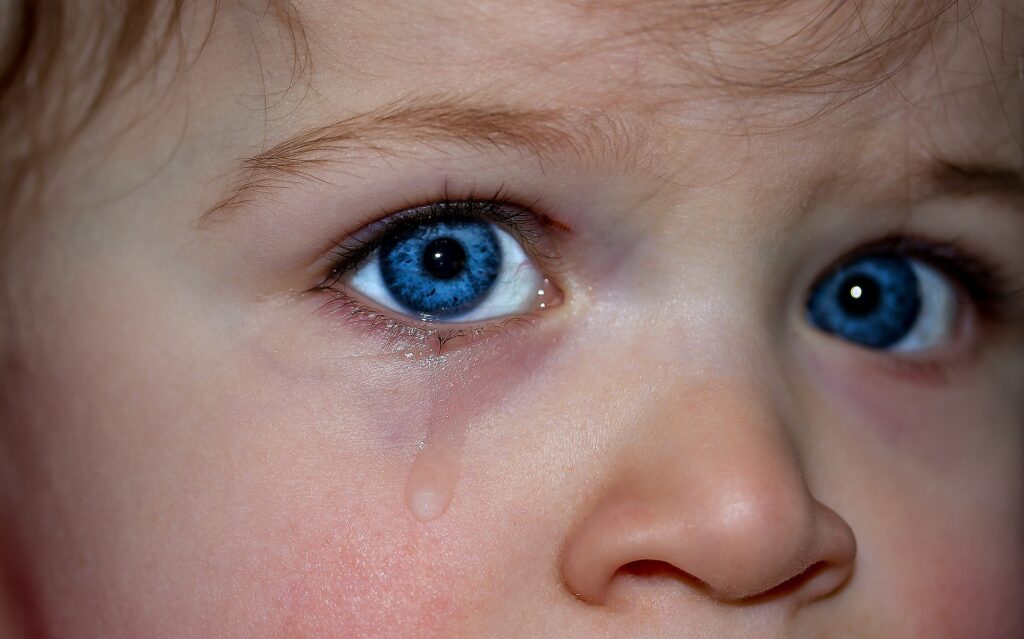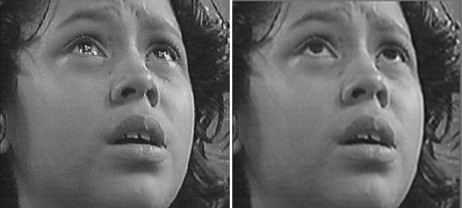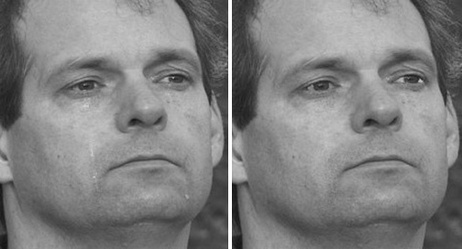
“Crying is good”, I say to my clients. “You gotta cry!”
I just googled “songs with the word cry in the title” and I found several dozen in one minute. But this important adaptation that humans have developed, while widely accepted in our music and literature, is seldom revered in daily life.
I am surprised by the fact that many people apologise for crying in my office. I gather that in society there is still shame about crying (though I lost mine years ago!). I understand that crying leaves you feeling very vulnerable. Hopefully, your psychologist is the last person to display discomfort or judge you for crying.
When people are moved to tears, it is usually because they are accessing parts of themselves that are precious and in pain. These parts have sometimes been out of reach for days, weeks or even many years. When these closed-off painful feelings receive some attention and empathy, they soften and tears are the result.
There are two main reasons crying is healthy, important and useful.
What Happens When We Cry?
First, let’s look at tears. Tears are amazing! There are basal tears, which flow constantly to keep the eyes wet. There are reflex tears, which flush out irritants such as smoke, onions, or dust. Finally, there are emotional tears, which are quite different. Emotional tears contain chemicals not found in basal and reflex tears including proteins (such as prolactin), stress chemicals (such as adrenocorticotropic hormone), and endorphins that reduce pain and improve mood. This suggests that tears have evolved as a way of ridding the body of toxins and waste products as well as releasing calming chemicals. The old saying “have a good cry and you’ll feel better” has a biological basis. You really do have a “release”.
Secondly, tears play a vital role in communication. Emotional tears evolved as a powerful signal that could only be seen by those closest to us (within a few metres), indicating that we are vulnerable and need support, without being obvious to those at a greater distance.
But tears do more than simply telegraph our emotional state to others.They are also able to evoke a powerful response in others, thanks to our brain’s mirror neurons (the same ones that makes us cringe when we see someone bump their head).
This experience of empathy is hugely important and fundamental to everything we do as human beings. This ability allows us to exist in groups, build communities, and protect and support one another. Our ancestors who most successfully elicited empathy from others were more likely to endure. The good criers were the survivors!
See For Yourself!
Tears communicate very specific information about the emotional state a person is experiencing and therefore, how they would like to be treated. In experiments using identical images, with and without tears, Professor of Psychology Randolph Cornelius showed that the presence of tears decreased the range and intensity of emotions that the viewers perceived. Take a look at these images. The first ones have tears, the second ones do not. I think you’ll agree, they make a powerful difference to your own interpretation of the emotional response.
And here’s the thing about our tears: they are hard to fake and so don’t tend to lie. We know we are probably touching into something honest and real when we cry. Which is why I love it (not in a sadistic way!) when, in a session, my client ends up in tears. Though it sometimes stings to witness their pain, I know they are getting to something real; something that means a whole lot to them. And I believe this is essential on the path to healing.
So next time you feel like a good cry, do it. Turn down the volume on your thoughts and go into your body. Let yourself feel those feelings fully. The first phase of crying is usually the most overwhelming, but if you stay with the emotion (i.e., don’t engage with the thoughts it generates) it will relax and soften you, often within a matter of minutes. You may feel a little washed-out after a good cry, but you’ll have done your body and brain a big favour.
Struggling with your mental health? The team at North Brisbane Psychologists can help. Book an appointment today!


